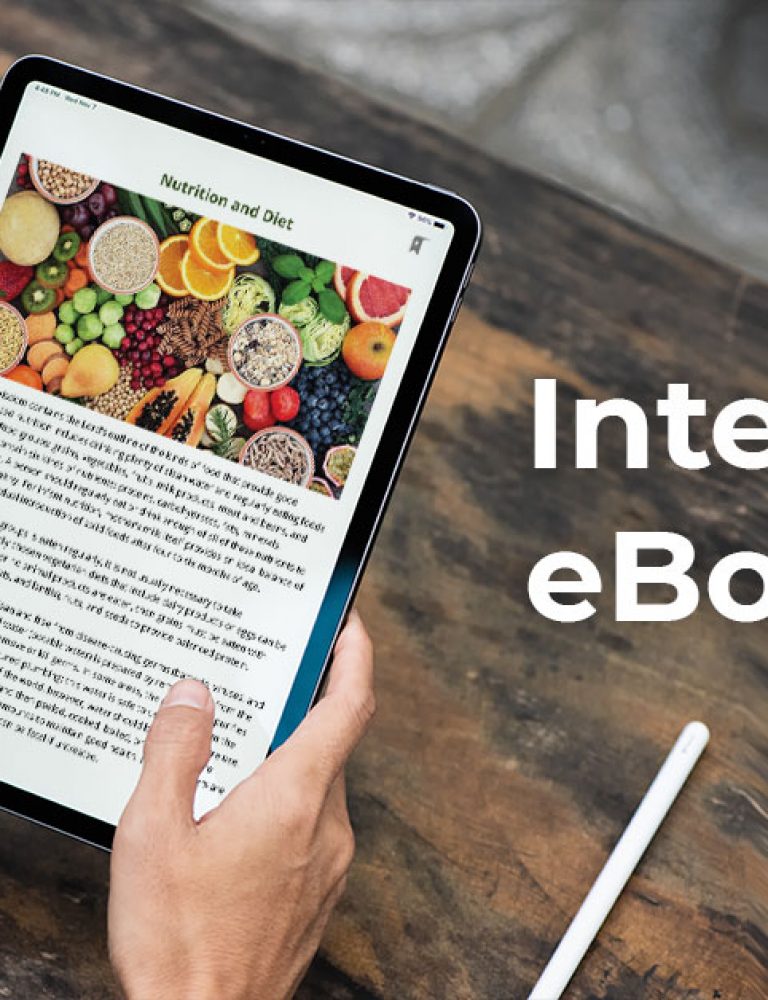With digital videos continuing to gain popularity in our everyday lives, it seems only natural that this widespread and preferred media should extend into the education system. Whether you’re running a blended, flipped, or pure eLearning course, educational video is an effective teaching tool.
Videos are one of the most diverse virtual learning mediums that help capture and present content/information and offer a sensory learning experience. This enables learners to understand concepts better and retain information for a long time.
Using videos in the classroom has consistently shown positive benefits such as-
- Facilitates critical thinking and problem solving
- Helps develop autonomy in learners
- Increases student engagement
- Improves knowledge retention
In this blog, we explore the benefits of including video content in the learning curriculum and how you can add videos to KITABOO’s interactive eBook platform.
Top 6 benefits of using video content in the learning curriculum
1. Better Understanding of the Content
Research suggests that one of the key benefits of multimedia/video-based learning is that it takes advantage of the brain’s ability to make quick connections between verbal and visual representations of content, leading to a much deeper understanding. This, in turn, supports the easy transfer of learning to other situations.
When videos are used as a learning aid for students, you can be guaranteed that learners will comprehend the information more effectively.
2. Educational Video Content is Customizable
Using videos in the curriculum creates a personalized learning experience, allowing students to learn at their own pace. With video-based content, learners can understand a complicated topic easily by watching the content as many times as needed. Furthermore, they can pause the content whenever they need to, take the time to write notes, or stop and think through the concept.
3. Using Video in the Learning Curriculum Promotes Engagement
Video- based learning is an excellent example of an interactive learning strategy. It makes learners connect to the concept faster by helping them improve the overall memory process. Learning through video also sparks curiosity in learners along with promoting the development of critical thinking abilities. Among the top pedagogical benefits of using videos in education include
- Enhanced learning experience
- Increased learner motivation
- Better teamwork and communication skills
Overall, adding videos to the curriculum helps communicate concepts better and makes learning more engaging and insightful.
4. Easy Accessibility
One of the other significant benefits of video lessons is that they’re easily accessible, and both the teachers and the students can access them anywhere. The rapid development of mobile devices such as smartphones and tablets has made the use of video-based instruction much more effortless.
All you need to do is ensure that the video format is supported on the device that you use. Even in the absence of a teacher, a link to the video can be sent to the students, and assignments can be given to them to save time.
5. Improved Problem Solving
Visual processing makes a large part of the human brain. Thus, using video, images, animations, and other multimedia content alongside text stimulates the brain and helps students with better attention and retention span. In such a stimulating multimedia-enriched learning environment, students can easily identify and solve problems compared to the scenario where learning is made possible only by textbooks.
6. Videos Help Accommodate Shorter Attention Spans
In general, the average student’s attention span is 6-15 minutes based on their age. If educators extend anything beyond this time, there are high chances of students losing attention and not retaining much.
Adding videos can help tackle this issue. Since a video can be stopped whenever needed to hold discussions, internalize the concept, or reflect on the information shared, students are better prepared to concentrate again once it is resumed.
This is also why most good educational videos have smaller modules, thus accommodating students’ shorter attention spans.
How to add videos on the KITABOO eBook Platform
KITABOO is an award-winning, interactive ebook publishing platform that helps you create multimedia-rich and mobile-friendly digital content.
In this section, we will discuss the step-by-step process of how you can add videos to KITABOO.
1. Log in to the KITABOO eBook platform with your admin account.
2. Once the eBook conversion is completed, you will see an enrich icon on the platform. Click on the icon.
3. This enrich icon will launch the enrichment tool, which features various enrichment tools for your eBook. These include images, videos, weblinks, audio files, third-party interactivity, documents (Word, PDF, PPT), on-page fill-in-the blanks with drop-down options, survey links, one book to another book jump option, audio sync, and more.
It is important to note here that KITABOO also supports widgets to create MCQ quizzes.
4. To add a video to your eBook, you need to select the video type and draw the area where you want the video to be added. Here you get an option to add an icon or you can add your video as a hyperlink to Kitaboo.com.
5. The platform gives you various options to upload your video; for instance, you can add your video from YouTube, Vimeo, or as an MP4 video as well. The primary benefit of adding MP4 video is that users can access it offline without the internet.
6. Once the video is uploaded successfully you need to press OK, followed by done on the bottom of the screen.
7. If there is any further assistance needed while uploading the video, you can press on the help option at the top of the screen, and you will be guided accordingly.
In conclusion
All in all, multimedia learning environments using videos and other tools have a direct effect on learning. An effect that significantly differs and can’t be easily achieved in traditional education materials.
In this blog, we have highlighted the top benefits of including videos in learning along with a stepwise procedure to embed videos in KITABOO’s interactive eBook platform to help you create robust multimedia learning environments for your students.
Discover How An Ebook Conversion, Publishing & Distribution Platform Can Help You
Kitaboo is a cloud-based content platform to create-publish & securely distribute interactive mobile-ready ebooks.
You May Also Like







